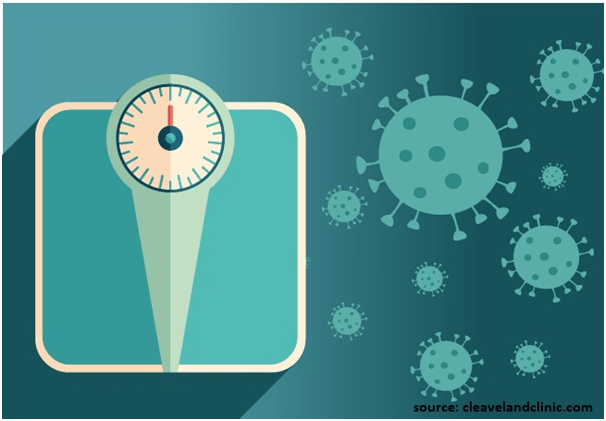In several countries, this same population segment is also the one at high obesity risk. So, it may worsen the obesity crisis in the coming days.
Additionally, the pandemic may contribute to a rise in obesity rates as weight loss programs (usually done in groups) and interventions like surgery are being seriously curtailed. This is likely to continue for an extended period.
The measures taken in few countries (e.g., not exiting the home for many weeks, even for people who are not sick) will impact mobility. Also, enforced physical inactivity, even for short periods, raises the metabolic disease’s risk.
Lastly, the current crisis and self-isolation need has prompted many to depend on processed and canned food. It is because most of us cannot go outside to buy fresh vegetables every time. We may find a rise in weight if this persists for a more extended period.
Furthermore, it is difficult to manage obese people who get affected by the coronavirus. Let us move on to understanding what the challenges are in managing obese patients.
Obese Patients- Challenging to Manage
Obese people who get sick need intensive care. However, there is difficulty in managing them. It is challenging to intubate obese patients; it can get more challenging to get the following procedures done:
Diagnostic imaging (because imaging machines have weight limits)
Nursing staff find it hard to position and transport patients
Positioning/transport equipment and special beds are present in specialized surgery units. However, it may not be widely present elsewhere in hospitals and not in every country. Standard health systems are still not correctly set up to control obese patients, and the crisis will show this weakness even more.
What can we do?
To prevent yourself from being affected by COVID-19 and obesity, follow the steps mentioned below:
Be vigilant: Wear a mask when going outside, remain at home as much as possible. Wash your hands frequently, socially distance yourself, and pay attention to, exercise, sleep, and nutrition.
Focus on diet: Consume plant-based diets with low energy consumption but rich in antioxidants and polyphenols. It will assist you in lowering the risk of cardiovascular diseases. Furthermore, it also plays a role in potentially decreasing COVID-19’s risks.
Benefit of vitamin D: Research on vitamin D indicates that low vitamin D status is connected with intubation risk and COVID 19- associated mortality. However, you cannot go forvitamin D supplements, as this benefit does not come from them.
Keep yourself and your family safe by following the points mentioned above. If you are obese or at risk of obesity, take extra care of your diet and exercise more. You can choose to take up an online consultation with a bariatric surgeon in Mumbai. They can guide you on what diet plan and exercise are best for you.

